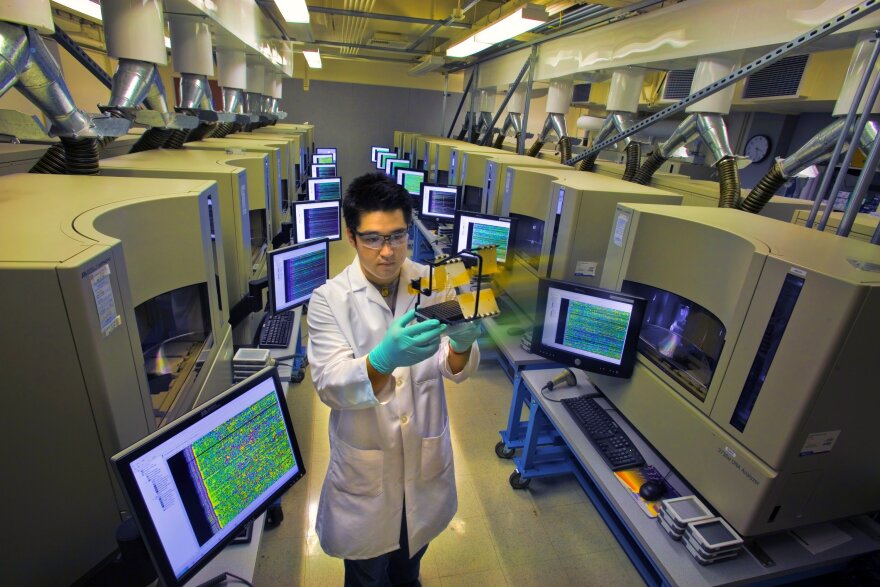There are many private testing services that will decode your DNA, catalog the foreign chemicals in your blood, or identify the bacteria living in and on your body. So it might come as a surprise that if you sign up for an actual biomedical research study, you might not be privy to what the scientists learn about you.
There are valid reasons for that, but times – and technology, and social norms – are all changing.
The National Academies of Science, Engineering, and Medicine say science needs to change, too. A new report recommends that scientists do return personal data to study participants whenever feasible, and that they think about how to do so responsibly before they even start a study.
When people take part in genetic studies, researchers often tell them they won’t get any of their own results back, even though a person’s entire genome may be sequenced as part of the study. Many times, people expect to get their results back, anyway.
Jeffrey Botkin is a Professor of Pediatrics and an Adjunct Professor of Human Genetics at the University of Utah. He says that researchers may be looking for a specific genetic marker when they come across a different, well-known marker that indicates an increased risk of breast cancer or colon cancer.
“They [researchers] stumble across something that has significant clinical implications the participants and they’re caught off guard to say, ‘my goodness, what do we do now with this?’” he said.
“What we’re recommending is that as folks begin in the research process to think about whether to return results,” Botkin said.
Botkin, who chaired the committee that created the new report and recommendations, said returning results is not a simple matter, so labs have to think about how they will do it. For one thing, researchers are not necessarily trained in how to deliver bad news to people.
“We’re really encouraging people to think this through from the investigator standpoint and the sponsor standpoint,” he said, adding that researchers should ask for enough funding to get help communicating properly with the people who have given up their DNA for the study.
“We want folks to be thinking… early in the process to do this in a comprehensive way,” he said.




